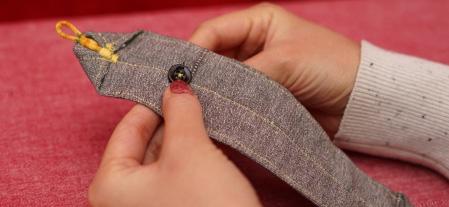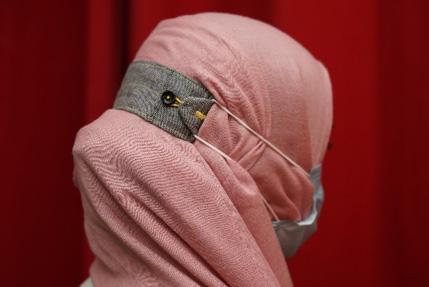
31 minute read
Frequently asked Questions
FREQUENTLY ASKED QUESTIONS CONCERNING WOMEN AND RAMADAN
By Naima Clarke
As we once again approach the wonderful period of Ramadan, many of us have genuine dayto-day questions about the practicalities behind Ramadan and what it means for women.
This article will look into some frequently-asked-questions on this subject and aims to briefly answer those queries.
Do we have to make up for lost fasts during menstrual days? Fasting is an incredible source of blessings and as such, women who are able to should endeavour to reap the blessings of fasting in all cases. Having said this, during the month of Ramadan, menstruating women are exempt from fasting but are still required to complete the missed fasts later on, this is according to the Holy Qur’an, Surah AlBaqarah, Verse 185-186.
Further concession is then also made for those Muslim women who are unable to complete their missed fasts later on as well; in such a case they are required to pay the fidya (a compensation for not fasting— in the form of feeding the poor).
(Holy Qur’an, Surah Al-Baqarah, Verse 185) (The Significance of Ramadan, Aizaz Ahmad Khan) [https://www.alislam.org/articles/significance-of-ramadan/]
When should a girl start fasting? One should start fasting when one reaches the age of maturity, although this age differs from country to country, this is usually around the age of 17-18 years old. This is when it becomes farz (obligatory) to keep the fasts of Ramadan. Of course, practising much shorter fasts which are less in duration or intensity can be a practise if one wills at a slightly younger age.
(Gulshan e Waqfe Nau Melbourne, Australia Lajna Nasirat 12th Oct 2013) [https://www.alislam.org/video/from-what-age-fasts-becomeobligatory/]
Does your fast break when menstruation starts? As is the case with all the acts of a Muslim, they are judged and rewarded according to intention. If a woman establishes her Niyah (intention) to fast in the morning then she will indeed Insha’Allah reap the blessings of that fast. If, however her menstruation starts during a fast, she must open her fast as this automatically breaks it, but the reward for that fast will still be awarded to her as the niyah to fast was nevertheless intact.
What do I do if I start menstruating whilst sitting I’tikaaf? Remember that every action is performed not to strong-arm the blessings of Allah, but rather to please and obey Him. A woman during her time of menstruation is not required to fast. Hence if a woman’s menstrual cycle starts during her time in I’tikaaf (a period of seclusion to focus on worship), she must discontinue the I’tikaaf. This is because she is neither liable nor able to fast in such a state, and the I’tikaaf is to be performed by those who are in a state of fasting. She should not however feel disheartened and should instead endeavour to reap the pleasure of Allah the Almighty through her obedience to Him and other forms of worship.
Can I do I’tikaaf at home? Yes, one may sit I’tikaaf at home, if you can find a quiet place in the house where no one will disturb you during your worship. Having said this, one should remember that we endeavour to follow the ‘Mathnoon’ way- i.e., the way practised by the Holy Prophet Muhammadsaw. His way was observing the 10 days of I’tikaaf within the vicinity of the mosque, and so we emulate his example so as to reap as many blessings as possible.
Hazrat Musleh Maudra states: ‘I’tikaaf can be offered outside the mosque, but it will not carry the same blessings as the one offered at the mosque.’ (Farmoodat-e-Musleh Maud p.171). Ultimately, Allah knows and understands our individual circumstances and conditions and will reward us and judge us based on our intentions.
Can I leave my room during I’tikaaf? The Promised Messiahas, whilst addressing two companions who were doing I’tikaaf, said:
‘It is not necessary that in I’tikaaf you only stay inside. You may go out on to the roof where it is warmer due to the sunlight - In the rooms down here it is cold. You may also speak about essential matters. [But] One should be mindful of what is important. Every action of a believer (if done with the right intention and bearing the sanctity of I’tikaaf in mind) is a form of worship.’(Fiqhul Masih p.220)
This is a very befitting guiding principle, that the purpose of sitting I’tikaaf is the worship of God, that is the goal and the objective that should be continuously kept in mind. Gossip or meaningless wandering is a waste of precious time and divert one’s attention from the treasure trove of spirituality that is laid open during these days.
How can I achieve nearness to God if I am menstruating and not able to fast or pray? Zikr-e-ilahi (the remembrance of Allah) is the true bond between Allah and His worshipper, and this can be done in many forms. Listening to the recitation of the Holy Qur’an or reading books about Islamic practice and spirituality are brilliant forms of worship to gain Allah’s nearness and knowledge during those days. Look past the obvious and understand that you are making this sacrifice out of obedience to the law of Allah, remember this is where the true sacrifice and reward lies. Allah resides closer than we imagine, He can be spoken to and confided in at all times - not just on the prayer mat. (Pathway to Paradise, Lajna Imaillah USA, 1996, Chapter 1) [https://www.alislam.org/book/pathway-to-paradise/islamicbeliefs-teachings/]
Can I fast if I am pregnant/ breastfeeding? Hazrat Anasra relates that the Holy Prophetsaw said: ‘Indeed, God has exempted a pregnant or a suckling woman from fasting.’ (The fasts thus lost can be kept after this period has passed. The same applies to a sick person and women during their monthly periods). (Ibn Majah, hadith No. 1,667)
In truth this is a gracious allowance given to women. The fact that women can reap the same blessings without partaking in the act itself is a gift and blessing from Allah and shows the love and compassion that our Beloved Creator has for His creation. It also goes hand in hand with the keeping of one’s health and ensures that the fast (which at times can be difficult) in no way impairs the health of the mother or that of her baby.
Do I need to make up for fasts missed whilst pregnant/ breastfeeding? Yes. One should make up for any fasts missed whilst pregnant or breastfeeding. This can either be done by giving fidya, or by completing fasts after the pregnancy/breastfeeding has finished. When the Promised Messiahas would miss the fast due to health reasons he would in fact make up the fast and also pay the fidya for the sake of blessings. This is a practise which many women do as well in order to attain the pleasure of Allah the Almighty.
(Friday Sermon of September 21, 2007) [https://www.alislam.org/archives/2007/summary/FST20070921-EN.pdf]
How should I best avail my day during fasting? Your day should be spent in zikr-e-ilahi, tasbeeh (glorifying Allah), recitation of the Holy Qur’an as much as possible and the performance of good deeds that will please Allah the Almighty. Remember the narrations of Satan being chained up and heaven drawing closer are metaphoric and mean that there is much greater opportunity and propensity for us to do good and adopt righteousness and piety in our lives during this month. Worship is not just an action, rather it is a way of life and involves everything we do. If we align our intentions in the way of pleasing God, everything we do forms a part of worship, be that fulfilling the rights of Allah, or indeed the rights of His creation. (Friday Sermon, May 18th 2018) [https://www.alislam.org/friday-sermon/2018-05-18.html]
Can I lead the prayer at home with my children? Yes. A mother with children at home but no one else to lead her in congregational prayer, may lead her children or members of her household in prayer. She may lead a congregation of children of either gender, but not one consisting of adult men. In addition, as a point of note, a female imam stands in the middle of the front row, and not ahead of the congregation as in the case of a male imam.
[https://www.alislam.org/question/female-lead-congregational-prayer/]
Why is Eid Prayer in congregation farz for women? The Eid prayer is Sunnat-e-Mu‘akidah - a practice that the Prophet Muhammadsaw told us to follow. As such everyone should come for Eid prayer. Even women having their period should also come to the mosque, but they should not take part in the prayer and instead, occupy themselves in the remembrance of Allah. We read narrations to this effect that even menstruating women at the time of the Holy Prophetsaw were told to come to the mosque to partake in this community-wide celebration of Allah’s blessings.
[https://www.alislam.org/question/why-how-eid-ul-fitr-celebrated/]
THE TEN MEN OF PARADISE
(Part 1 of the series on the Ashra Mubashra) | By Naila Tahir
What is meant by the term Ashra Mubashra?
Ashra in Arabic means 10 and ‘Mubashra’ means good news or glad tidings.1
The Ashra Mubashra were ten pious companions of the Holy Prophetsaw who were foretold the news by the Holy Prophetsaw in their lifetime that they would enter paradise after death.
“And whoso obeys Allah and this Messenger of His shall be among those on whom Allah has bestowed His blessings, namely, the Prophets, the Truthful, the Martyrs, and the Righteous. And excellent companions are these.” (Holy Qur’an 4:70)
Of whom is the Ashra Mubashra comprised of?
The narration pertaining to these ten companions is recorded by Ahmad (1/193) and At-Tirmithee (no. 3747). ‘Abdur-Rahmaan Ibn ‘Awfra narrated that the Holy Prophetsaw said:
ف نامثعو ةنلا ف يلعو ةنلا ف رمعو ةنلا ف ركب وبأ نب نمحرلا دبعو ةنلا ف ريبزلاو ةنلا ف ةحلطو ةنلا ديز نب ديعسو ةنلا ف صاقو يبأ نب دعسو ةنلا ف فوع ةنلا ف حارلا نب ةديبع وبأو ةنلا ف ليفن نب ورمع نب
“‘Abu Bakr is in Paradise, ‘Umar is in Paradise, ‘Uthman is in Paradise, ‘Ali is in Paradise, Talhah is in Paradise, Az-Zubair is in Paradise, ‘Abdur-Rahmaan Ibn ‘Auf is in Paradise, Sa’d Ibn Abee Waqqaas is in Paradise, Sa’eed Ibn Zayd Ibn ‘Amr Ibn Nufayl is in Paradise, and Abu ‘Ubaydah Ibn Al-Jarraah is in Paradise.” 2
1. Hazrat Abu Bakrra 2. Hazrat Umar Farooqra 3. Hazrat Uthmanra 4. Hazrat Alira 5. Hazrat Talhara 6. Hazrat Zubair ibn-e-Awamra 7. Hazrat Abu Obaida ibn-al-Jarahra 8. Hazrat Abdul Rehman ibn-e-Aufra 9. Hazrat Saad ibn-e-Abi Waqasra 10. Hazrat Saeed ibn-e-Zaidra
1. Hazrat Abu Bakr Siddiq (May Allah be pleased with him) Period of Khilafat: 632-634 AD
Hazrat Abu Bakrra was the first Khalifa of Islam. His daughter Hazrat Aishara was one of the wives of the Holy Prophetsaw. His name, Abu Bakr means the father of Bakr, but his personal name was Abdullah. He was born in 572 AD in Mecca.
Hazrat Abu Bakrra had a close relationship to Hazrat Muhammadsaw prior to his daughter’s marriage; he was a close companion and a sincere
1 https://szshaikh.wordpress.com/2018/11/22/ashra-mubashra-the-ten-blessed-companions/ 2 Jami’ at-Tirmidhi, Book 49 (The Chapters on Virtues), Hadith 4112.

friend of the Holy Prophetsaw. Hazrat Abu Bakrra became one of the first people to accept Islam. He had gone on a business trip and on his return, he heard that the Holy Prophetsaw announced to the people that the Almighty God had raised him as a prophet. Upon hearing this Hazrat Abu Bakrra went straight to the Holy Prophetsaw and asked him, to which he replied yes and explained as to why, then Hazrat Abu Bakrra interrupted as to whether he had declared his prophethood to which the Holy Prophetsaw replied yes, to this Hazrat Abu Bakrra immediately stated, “Then I bear witness that you are a Messenger from God.”
Because he was one of the first people to accept Islam Hazrat Abu Bakrra had earned the title of Siddiq, i.e. the truthful. He was the only companion with whom the Holy Prophetsaw migrated from Mecca to Medina and took refuge in the Cave Thaur during the journey when the Quraish were following them. Whilst in the cave Hazrat Abu Bakrra, rather than fearing for his life, was concerned for the safety of the Holy Prophetsaw and stated: “O Prophet of God! I fear not for myself, but for you. For, if I die, I am but an ordinary man; but if you die, it will mean death to faith and spirit.” But the Holy Prophetsaw reassured him and said, “Fear not. Allah is with us.” 3
After the sad demise of the Holy Prophetsaw , Hazrat Abu Bakrra was elected as the first Khalifa. The greatest achievement of his Khilafat was the collection of the Holy Qur’an in one place, which was written on different pieces of leaves, slates and skin. While the arrangement of the writing of the Holy Qur’an was done under supervision of the Holy Prophetsaw, during the lifetime of the Holy Prophetsaw, Hazrat Abu Bakrra organised the system of Huffaz, or those who committed it to memory, in a systematic way, for the preservation of the Holy Qur’an.
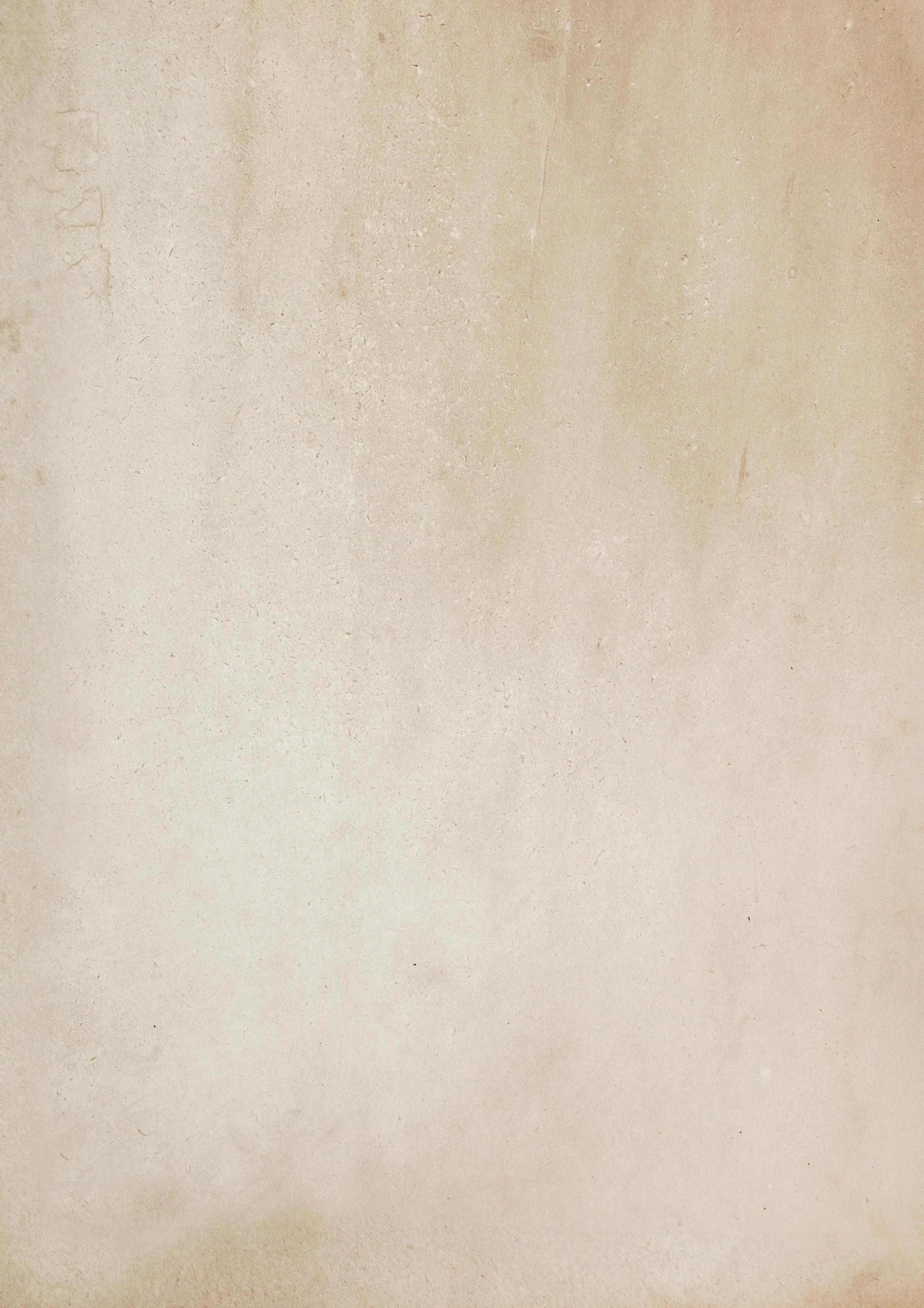
Hazrat Abu Bakrra passed away in 634AD, after remaining ill for fifteen days. He remained Khalifa for two years.
2. Hazrat Umar bin Khattab (May Allah be pleased with him) Period of Khilafat: 634-644 AD
Hazrat Umar Farooqra was born in 581AD in Mecca and belonged to a noble family of the Quraish. He was the second Khalifa of Islam. However, prior his acceptance of Islam he was a fierce opponent of Islam.
Upon hearing the Holy Prophetsaw announcing his prophethood, he became intent on killing the Holy Prophetsaw. On his way to carry out this deed, someone informed him that his sister and brother-in-law had accepted Islam and so he went straight to them. He knocked on their door and heard the recitation of the Holy Qur’an inside. Furious he went inside and started attacking his brother-in-law and wounded his sister in the process. His wounded sister then said, that even with all his violence against them they would not leave Islam. This statement from his sister calmed Hazrat Umarra down and then he asked them to recite the Holy Qur’an, which moved him so much that he went straight to the Holy Prophetsaw and accepted Islam. This miraculous change in Hazrat Umar’sra heart was in fact the result of the Holy Prophet’ssaw prayers and because Hazrat Umarra was an influential, courageous and wealthy man
3 Siyarus-Sahabah, vol. 1, part 1 (Khulafa’-e-Rashidin), ‘Abdus-Salam Nadwi, vol. 1, p. 28, Idarah Islamiyat, Lahore.
in Mecca, he had been shown to be a source of strength for Muslims.
In fact, the Holy Prophetsaw used to pray for Hazrat Umarra for his acceptance to Islam, as Ibn Umar reported: “The Messenger of Allah, peace and blessings be upon him, said, “O Allah, strengthen Islam with one of two men whom you love more: Abu Jahl or Umar ibn al-Khattab.” Ibn Umar said, the most beloved of the two was Umar.” 4 (Sunan al-Tirmidhī 3681)
Hazrat Umarra was so concerned regarding the welfare of his people as a Khalifa that he used to go around the city at night in disguise to see if anyone was in need of help. One night he saw a woman cooking something in a pot, while her two children were crying; later he found out the family had not eaten in two days and the mother was just consoling the children by pretending she was cooking something. He then immediately went to the treasury and brought all the food items to the woman himself. On the way his servant offered to help carry the load, but he stopped him and said: “On the Day of Judgment you will not carry my load.” The woman who did not recognise Hazrat Umarra was so happy that she said: May Allah make you the Khalifa in place of Umar. On hearing this Hazrat Umarra started crying and without saying a word left the place.
When Jerusalem in Palestine was conquered by Muslim in 17 Hijri, Hazrat Umarra personally visited the city on the request of the Romans and signed a treaty between the Muslims and the People of Jerusalem.
Hazrat Umarra, was martyred while offering his prayers in the mosque. He was stabbed by a Persian slave and passed away during 644AD. He was Khalifa for ten years.
3.Hazrat Uthman (May Allah be pleased with him) Period of Khilafat: 644-656 AD
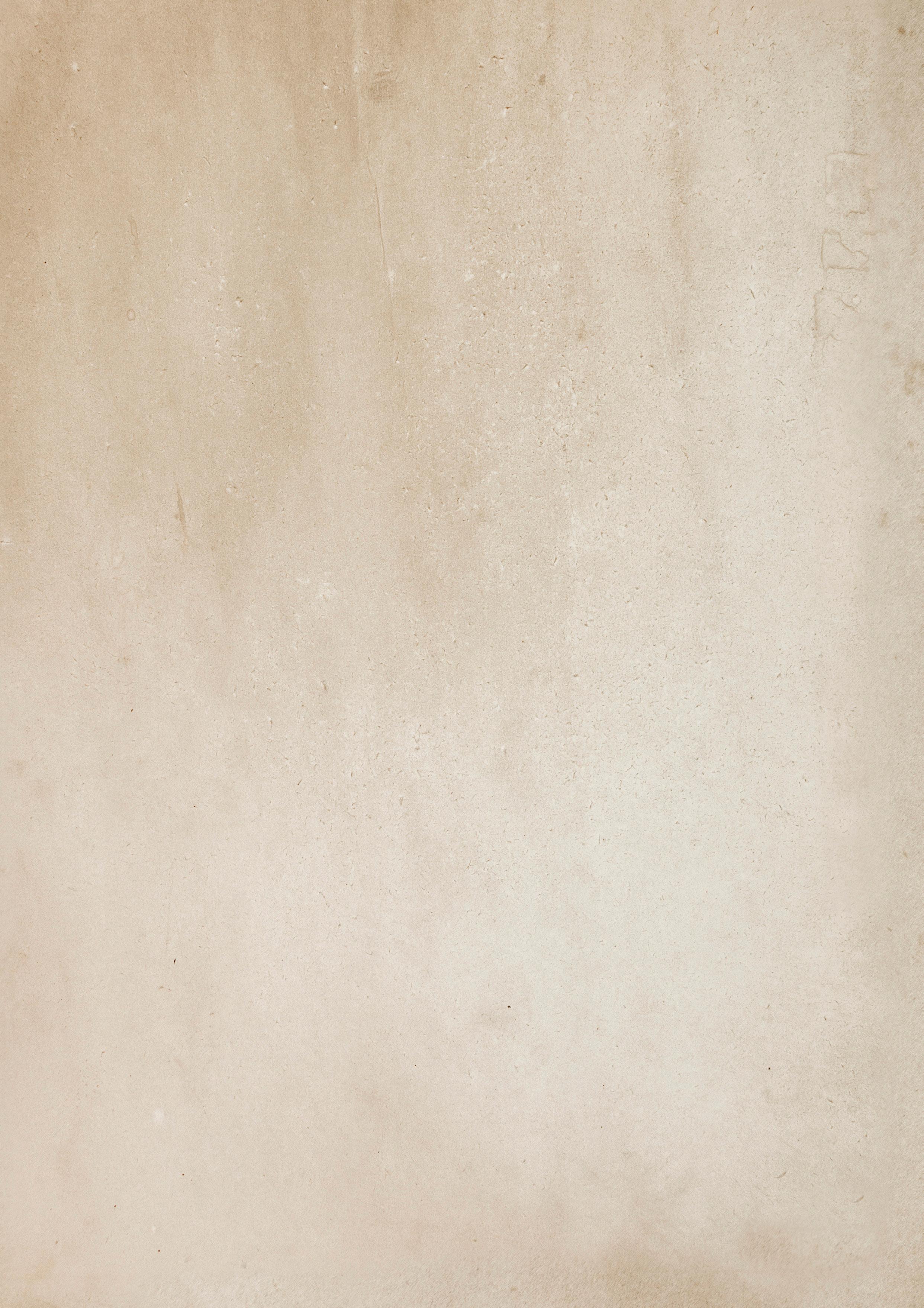
Hazrat Uthmanra, was the third Khalifa of Islam. He was related to the Holy Prophetsaw on account of being from the lineage of Abd Manaf, as his maternal grandmother was the sister of the Holy Prophet’ssaw father.
The Holy Prophetsaw married his daughter Ruqayyah to Hazrat Uthmanra, however she passed away during the days of the Battle of Badr. The Holy Prophetsaw then wed his daughter, Umme Kulthum, to Hazrat Uthmanra. Thus, Hazrat Uthmanra, was also known as Dhun-Noorain, meaning the possessor of two lights.
Once, Hazrat Uthmanra, went to meet the Holy Prophetsaw along with Hazrat Talha bin Ubaidillahra , prior to their acceptance of Islam. The Holy Prophetsaw explained to them the true message of Islam, upon which both accepted Islam. Hazrat Uthmanra, told the Holy Prophetsaw that one night when he returned from Syria and heard a cry that Ahmad had manifested in Mecca and when he went to Mecca, he heard of the Holy Prophet’ssaw claim and thus, went to meet him.
When the Holy Prophetsaw set out for the Battle of Badr, he instructed Hazrat Uthmanra to not go to battle, rather that he should stay behind and tend to Hazrat Ruqayyahra, who was ill. Hazrat Ruqayyahra passed away during the days of the Battle of Badr. After the demise, the Holy Prophetsaw met Hazrat Uthmanra in the mosque and told him that Gabriel had informed him that God had decreed for his daughter Umme Kulthum to be married to Hazrat Uthmanra. Once, the Holy Prophetsaw asked Umme Kulthumra, how Hazrat Uthmanra was as a husband, to which she replied that he was an excellent husband. 5
4 https://abuaminaelias.com/dailyhadithonline/2012/09/17/umar-converts-to-islam/ 5 https://www.alislam.org/friday-sermon/2021-01-22.html

During the Khilafat of Hazrat Uthmanra the Islamic Empire expanded still further; the whole of Iran, Asia Minor and Egypt came under Muslim control and it was during his Khilafat that a navy and an Islamic fleet were established.
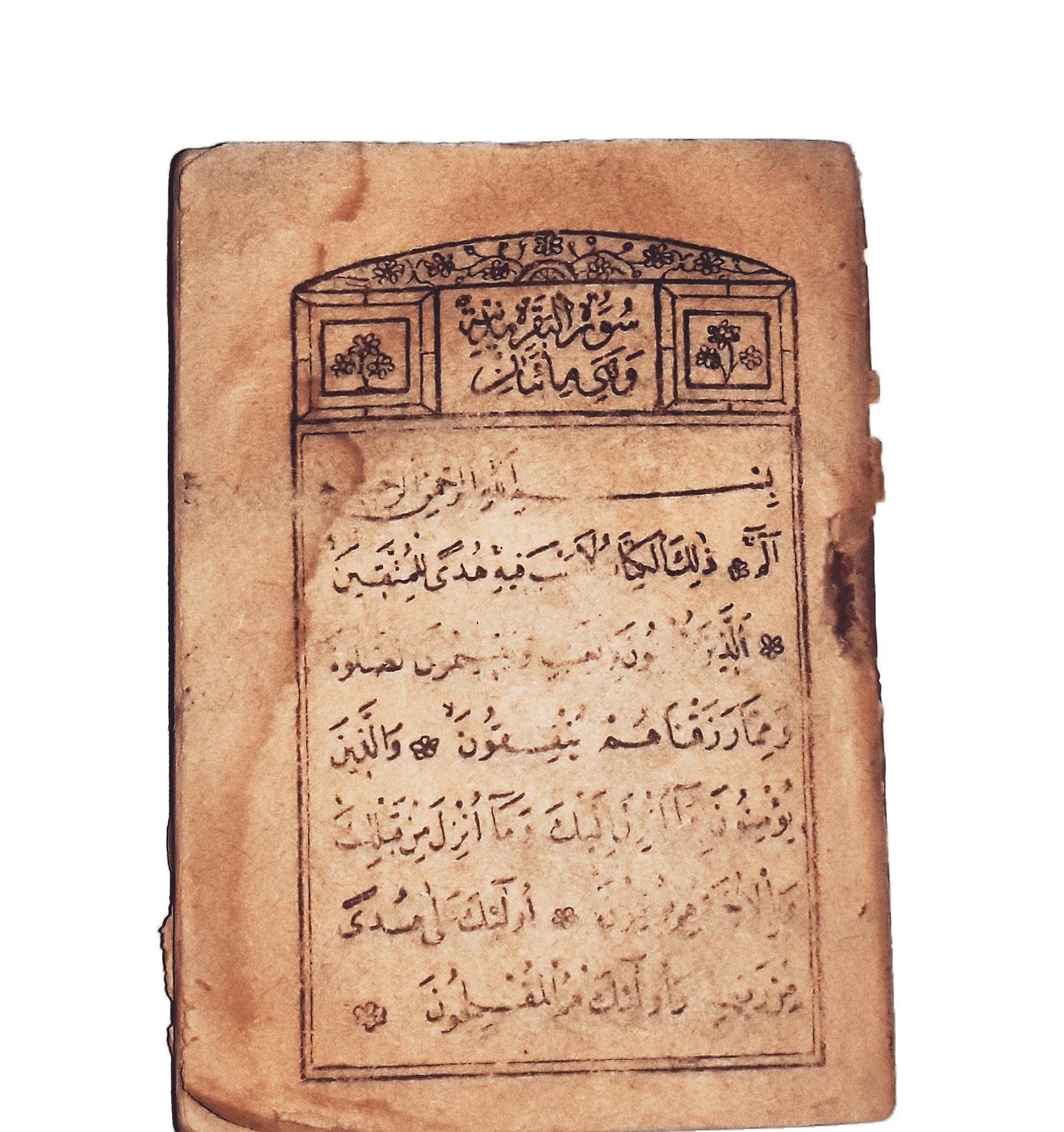
One of the most important deeds carried out during his Khilafat, was that standard copies of the Holy Qur’an were prepared from the ones compiled by Hazrat Abu Bakrra and sent to all the provinces of the state. The Holy Qur’an, as compiled today was completed during his Khilafat and under his direct supervision.
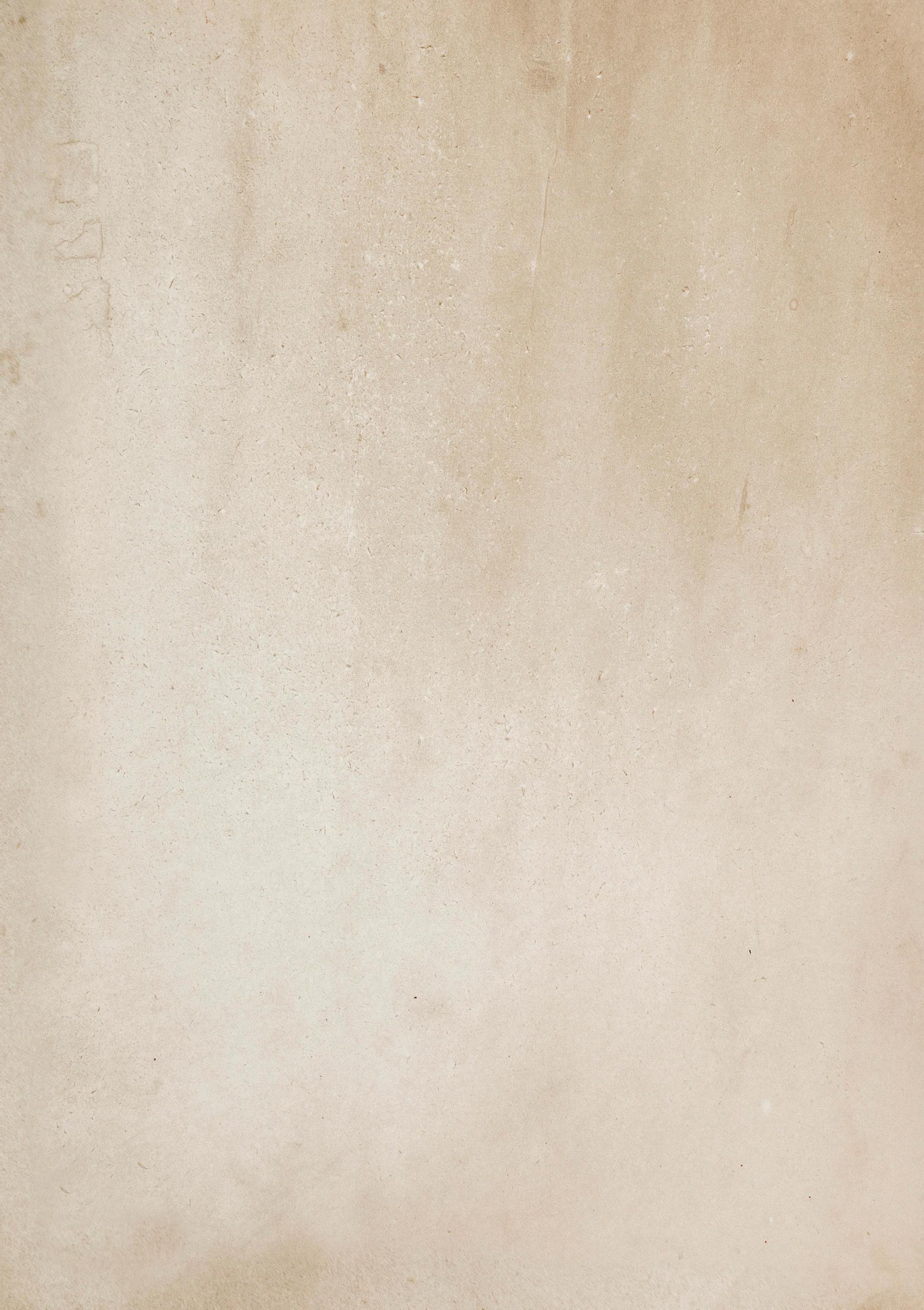
Hazrat Uthmanra was martyred in 656 AD, while he was reciting the Holy Qur’an. He certainly sacrificed his life for the integrity of Khilafat in the best interest of Islam. His Khilafat lasted for 12 years.
4.Hazrat Ali (May Allah be pleased with him) Period of Khilafat: 656-661 AD
Hazrat Alira was the fourth Khalifa of Islam. His father’s name was Abd Manaf who was better known as Abu Talib, and his mother’s name was Fatimah bint Asad bint Hashim. Hazrat Alira shared many relations to the Holy Prophetsaw - he was his first cousin as well as the Holy Prophet’ssaw son-in-law, through marriage to his daughter Hazrat Fatimara .
During a state of famine in Mecca, the Holy Prophetsaw approached his uncle Abbas and suggested that since his other uncle Abu Talib had many children and was not very well-off, and times were difficult due to the famine, that they would adopt one child each in order to make it easier for Abu Talib. Thus, they both went to Abu Talib with this idea, to which he agreed. Thus, Hazrat Alira came into the care of the Holy Prophetsaw .
At the time of his acceptance of Islam, Hazrat Alira was thirteen years of age, whilst according to some other narrations, his age was eleven years. According to historians, Hazrat Alira was the first child to accept Islam.
Once, according to the divine command that the Holy Prophetsaw should warn his family and invite them to Islam, the Holy Prophetsaw instructed Hazrat Alira to invite the family of Abdul Muttalib for a meal. After the meal, the Holy Prophetsaw wished to give a speech, inviting everyone to the religion of Islam. However, the treacherous Abu Lahab said something whereby everyone who was present dispersed. Then the Holy Prophetsaw asked Hazrat Alira, to invite his family again, and on that occasion, he encouraged his family to accept Islam and the One True God. The Holy Prophetsaw asked if they would support him in this mission. Everyone remained silent, except for the thirteenyear-old Hazrat Alira, who spoke up and said that though he was the youngest and the weakest present, he would support the Holy Prophetsaw .
Amidst the increasing opposition of the Makkans, the Holy Prophetsaw was informed by God regarding the Makkans plans to assassinate him. He was then divinely commanded to migrate from Makkah to Madinah. Thus, the Holy Prophetsaw left his home at night, even as it was surrounded by Makkans. He left Hazrat Alira in his home, ensuring him that by the grace of God, nothing would happen to him. The Holy Prophetsaw instructed Hazrat Alira to lay in his bed, so that when the Makkans would look inside, they would not suspect that he had left. When the Makkans closed in, instead of the Holy Prophetsaw they found Hazrat Alira .
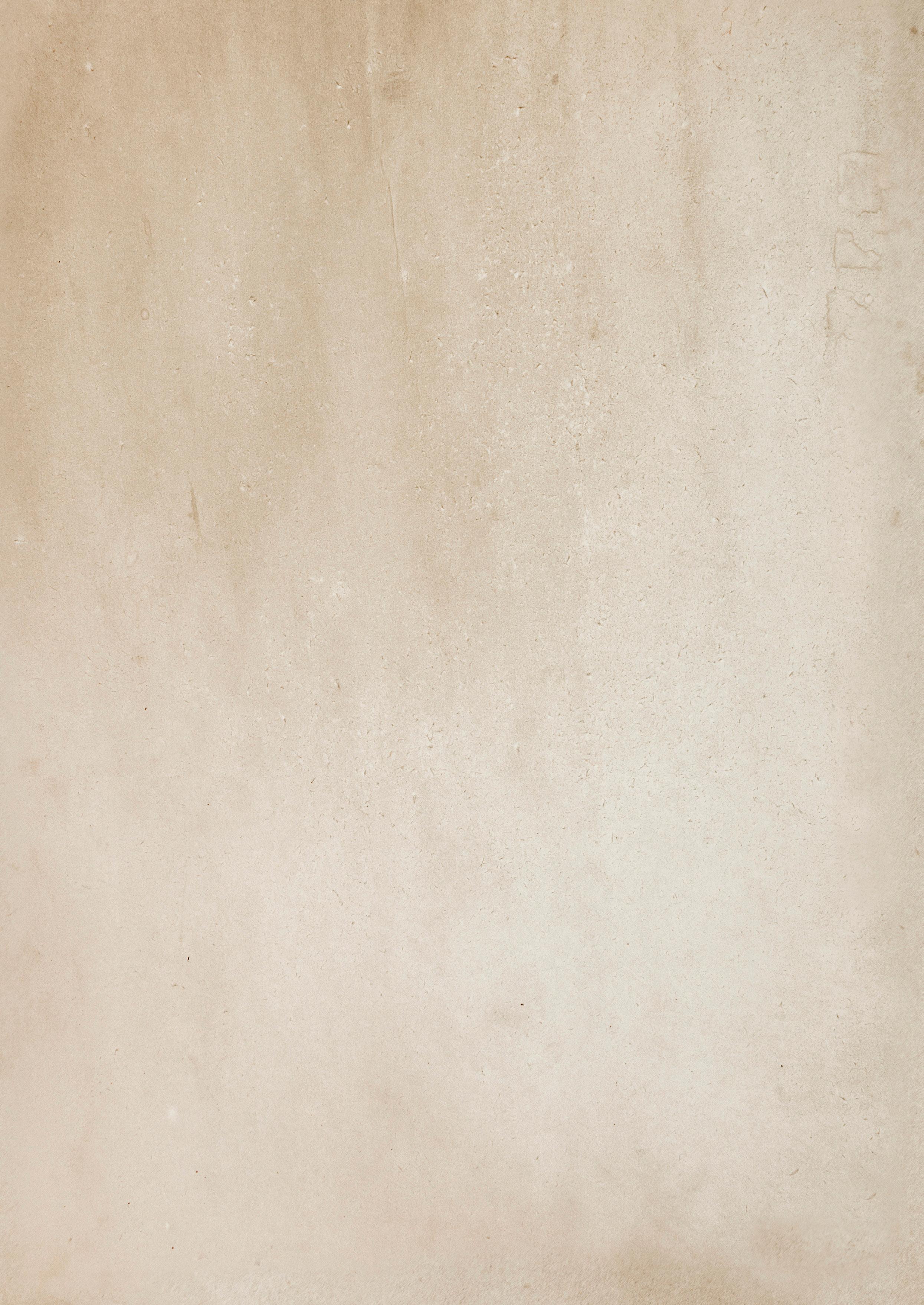
On June 23rd 656 AD, six days after the death of Hazrat Uthmanra, Hazrat Alira was chosen as the fourth successor of the Holy Prophetsaw and the public swore allegiance at his hand one by one.
Hazrat Alira announced that his top priority was to restore law and order in the state, and only then he would be able to bring the assassins of Hazrat Uthmanra to justice. Hazrat Alira urged Amir Muawiah, who had not taken the Bai’at, to submit to him in the best interest of Islam. But Amir Muawiah refused to submit on the pretext that the blood of Hazrat Uthmanra, who also belonged to family of Umayyah, must be avenged first.
Amir Muawiah, with the help of Amr Bin As, started raising an army. Hazrat Alira had no alternative but to advance towards Syria to fight Amir Muawiah. In July 657 AD, the two armies met in a battle at Saffain. The battle ended in an accord that the matter be decided by an arbitration committee. This arbitration ended in failure.
A large group of people, who were against the proposal of arbitration, separated from Hazrat Alira and chose an independent Amir for themselves. This group was called Khawariji, meaning `The Outsiders’. At first, Hazrat Alira tried to persuade them to submit to him but failed. This led to a fierce battle in which most of the Khawariji were killed.
After this crushing defeat, the Khawariji planned to assassinate Hazrat Alira. Hazrat Alira was fatally wounded by his attacker, while going to the mosque for Fajr prayer. Two days later, this courageous and pious Khalifa passed away on 20th Ramadan 661AD, as a martyr. Undoubtedly, Hazrat Alira sacrificed his life for the integrity of Khilafat. His Khilafat lasted for 6 years.










The Choice is Yours!
By Mustabshira Qayyum
“What we learn from History is that we do not learn anything from History” George Bernard Shaw
The number of planes landing and taking off at Heathrow Airport in 2019 was recorded to be 476,000 with around 80,957,272 passengers travelling from Heathrow Airport alone that year. We were living in a time when we ran to catch the bus and tube every morning, hoping to get a seat, rushing to get to school and work on time, and coming home tired every day. Humans had become so smart that we were discovering the remains of extinct animals and were tirelessly finding life on other planets. It seemed almost impossible to think we could ever slow down. Everyone was thinking so far ahead, praying for the third world war not to take place, that no one thought we could go back in time and be struck brutally by a tiny organism, a tiny virus called Coronavirus!
Three influenza pandemics struck in the 20th century with the most severe being the Spanish Flu. The Covid-19 pandemic is the second pandemic of the 21st century, the first was caused by the H1N1 virus in 2009.
We are privileged to now be living in a time where some of the governments are able to support its citizens by offering grants, by creating alternative means of work and have provided the facility of furlough. Due to our sophisticated intelligence in technology, we have been able to work remotely and have been able to stay in touch with friends and relatives every single day, which was not possible in the 20th century. As awareness and the use of social media has influenced us greatly, we are able to know what is happening in the world instantly. Today, we have daily figures of new cases in the country and around the world making it impossible to hide any information from the public.
One should try not to get over-whelmed by all this information, as the aim here is for us not to forget the need for the government rules and restrictions. It is simply to remind us that a year since the pandemic began, after being in lockdown for months and months, we should not forget that these laws are made to keep us safe and alive.

In a year where we have been unable to meet loved ones, attend religious and social events, such as the Friday and Eid prayers, travel to other countries, and calmly have a cup of coffee in a café without having to worry about using hand gel, the big question remains, what have we learnt and how can we remain positive?
This period has been a time of self-reflection for many. It has given us the time we never had, to look closely at ourselves and focus on what matters to us. Although financial stability is key, talking to loved ones and finding out that they are safe and sound is what matters the most to all of us. The pandemic has made us realise that we take a lot of things for granted. Even though there are different religions and races, we have all come together to fight against this virus. This shows that we can be united, we can live together happily, we haveresilience, patience and kindness.
“Light at the end of the tunnel”
At times, we may feel isolated at home, with no new activities to do but do we have a plan or a goal that we want to achieve tomorrow or when life goes to normal? Do we have a wish? Then remember, we must stay positive for a few more weeks, to meet all those people we have not been able to meet, to visit those places that we couldn’t, to attend events that couldn’t take place and to continue conquering our dreams. Just remember, this is a test which will soon end, but our performance will determine our final score. Insha’Allah.

“Worry kills more people than the disease itself”
For a second, let us stop feeling helpless and sorry for ourselves, because we can still do almost everything with a smart phone and Wi-Fi at hand. From searching new recipes, video calling friends and relatives in different parts of the world, to arranging Jama'at meetings and exercise classes, we can still have a happy life. This pandemic has in a way brought us closer because we are now a call away from each other.
We are privileged to have access to great healthcare. So, if at any point you feel low, call a friend, your Sadr/Jama'at member, call your GP, or contact one of the following organisations :
Samaritans, Mind, iCOPE
Remember, it is very important to share how we are feeling, and always remember to check on friends and family regularly.
“It’s not the work that’s hard, it’s the discipline”
It is important to have a routine and remain disciplined. Staying in bed all day is not going to help. Although it may seem pointless to make your bed, and dress-up at home, it is very important for our mind to stay focused. Your subconscious brain learns what you teach it. Psychologists have said that if you wake up and say “I am happy” out loud every day for a few days, you will automatically start feeling happier. You are in-charge of looking after your physical and mental health. So take control! Your daily routine can include the following:
Namaz and recitation of the Holy Qur’an
Exercise – walk, cycle, run, stretches at home Work/school Cooking/baking –as that is very therapeutic
Watch your favourite show
Eat healthily Remember to watch MTA Do your chores
Contact someone new everyday
Meditation – this can be done at any point in the day, there are so many apps available which can be downloaded on our phone. Examples are “Calm” and ‘’Mindfulness’’.
Yoga – this can be very effective if done regularly. If you do not know how to do it, then watch a clip on the internet and follow the instructions! Hobbies & activities – find something new to do, like painting, drawing, learning a new language, reading a new book, joining the course you have always wanted to join or learning how to drive.
Spirituality – this is the most important element. We should not forget the reason for our existence, and we should not forget to be grateful to Allah for giving us good health. Those who have lost their loved ones should pray for their forgiveness from Allah. Whenever you feel helpless (which happens quiet often in our lives), remember that everything is in God’s hands. After you submit to Him in prayer and supplication, you will feel a great sense of satisfaction, which no word of man can give to you.
May Allah make us all enduring, tolerant, humble, kind, and pious. Ameen.
Arts Crafts &
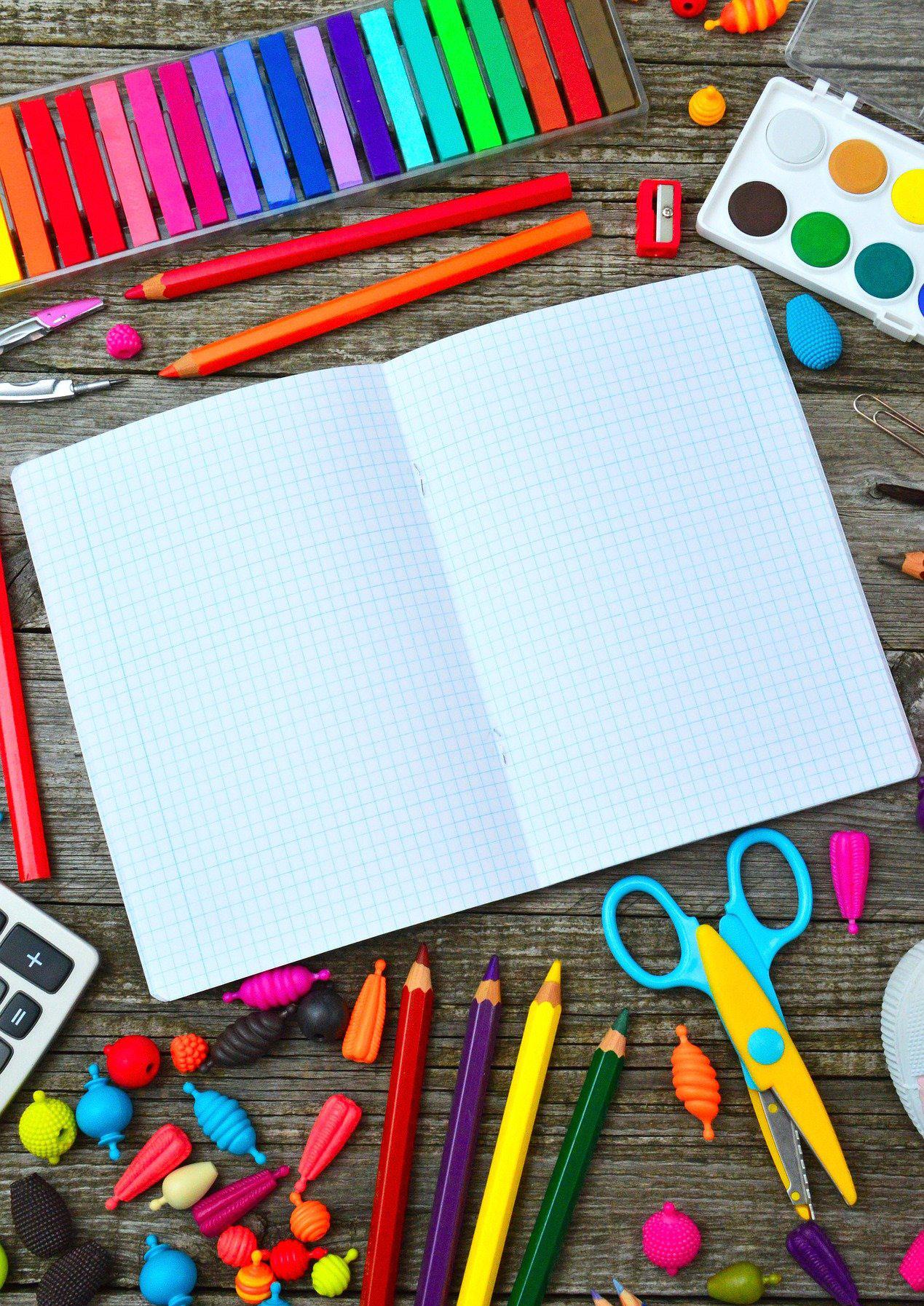
EAR SAVER MASK EXTENSTION
Materials
• Fabric, ideally cotton of medium thickness (try upcycling fabric) • Thread and needle • Sewing Machine (or hand stitch) • Iron • Ruler or measuring tape • Tailor’s chalk or washable marker • Scissor • 2 Buttons • String • Face Mask
Step 1: Determine the grain of the fabric - pull your fabric along a straight line horizontally, and then vertically. The direction in which the fabric does not stretch at all is the direction of the fabric grain. We want the length of the ear saver to be in the direction of the grain as this will prevent it to stretch out when worn. Step 2: Iron the fabric flat, then use a washable marker or tailors chalk, to mark a 10-inch-long straight line in the direction of the fabric grain. This will be the length of the ear saver (before stitched). Then mark the width about 4 inches wide. Complete the outline by making it into a rectangle, 10 inches long and 4 inches wide. Leave quarter of an inch on the outside of the rectangle along its length, to give room for stitching.
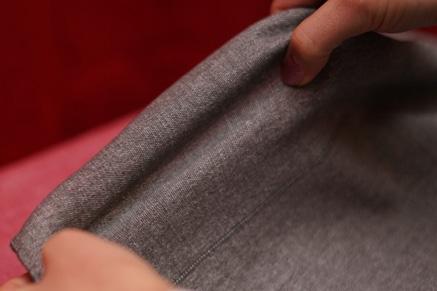

Step 3: Divide the rectangle with a line in the center (lengthwise). This will be 2 inches from either side of the length of the rectangle, where the fabric will be folded.
Step 4: (optional) For your own understanding you may mark a line widthwise half an inch from the ends (where fold on both edges will be)

Step 5: Leaving out the quarter inch on the lengthwise edges, cut out the fabric.

Step 6: Fold on the center line and iron it to keep it flat.
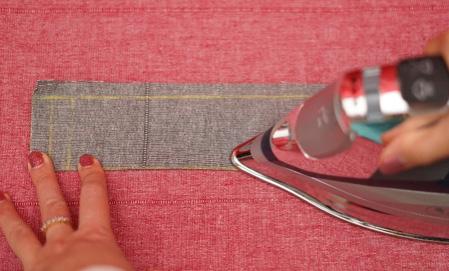
Step 7: Stitch straight along the outside line and bring the seam to the centre and press open the seam with your iron. Bringing the seam to the center will help to avoid any unwanted stretch in the final product.

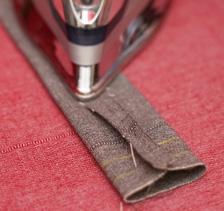
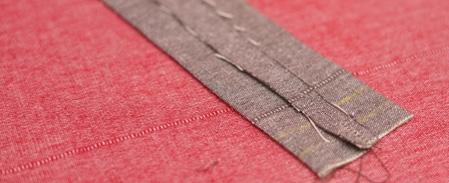
Step 8: Turn the stitched fabric inside out, keeping the seam in the center.
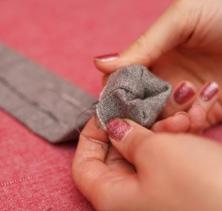
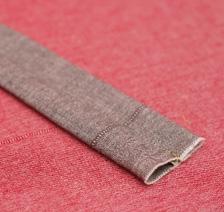
Step 9: Now iron it flat again and stitch on the center (where the seam is) and on both edges along the length.
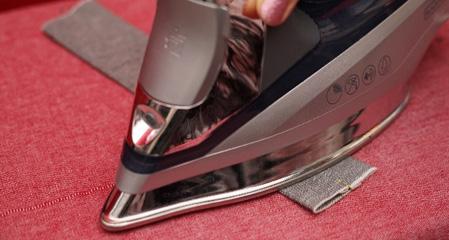
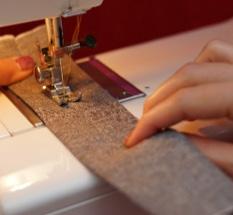
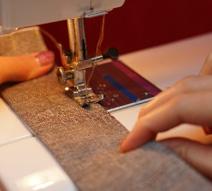

Step 10: Place the fabric with the seam side facing down and fold half an inch on both the sides and then iron them out.
Step 11: Next, use a thick string to make the button loop of the ear saver. To determine how big the loop should be, fold the string into a loop shape and pass the button through it to make sure it’s neither too loose nor too tight. Then mark the determined length.
Step 12: Place the loop lengthwise so that the loop is sticking out of the folded fabric and the marked part on the loop is aligned with the edge of the folded fabric. Hold it firmly in place and then with the string loop in place, stitch straight along the width. Step 13: Fold the corners of the edge inwards so that the looped ends take the form of a triangle, and then stitch over it using a fill stitch option or simply strict across the width. We chose to do a fill stitch as that gives an embroidered and more aesthetic look to the final product. Do this on both ends.
Step 14: Now fold the triangle inwards and slightly open up the loop to mark a dot through the loop on the fabric below. This dot is where the button will be stitched. Do the same on the other end as well.

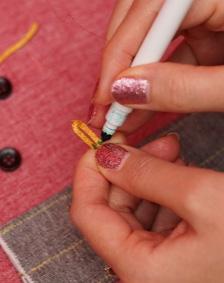

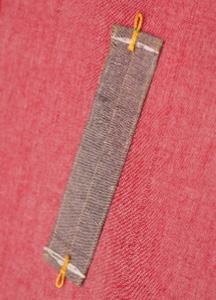
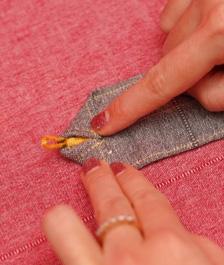



Step 15: Stitch the button on the marked dots.
Step 16: Insert the elastic string of your mask in between the loop and the button and close the flap using the button and the loop. Do the same on the other end as well.
Step 17: Now it’s ready to be worn over the head instead of the ears.
